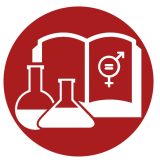ISEG has an increasing number of Courses that include gender. PLOTINA played a role in introducing many of them into the curriculum.
The titles of the Courses available include: Course in Summer School ISEG 2019: “Economics of the Household and Gender” (here) ; “Seeking Gender Perspectives” (here); and the short course “Economics of Discrimination” (here); Género e Cidadania Gender and Citizenship; and a course co-organized with Nova Gender, Politics and Policies at the Lisbon Doctoral Summer School in Economics taught by Paola Profeta, Bocconi University (3-5 June 2019) (here).
Preparing and organizing new courses and getting them approved at different levels of the institution.
Very few Gender Studies or Gender Equality studies are in the curriculum. Some curricular units approach the subject but are not entirely on the subject which makes it more difficult to measure the teaching /learning on gender that available to students.
Insufficient funding for the courses.
In order to address the above-mentioned challenges, there were a few meetings where issues were discussed, and the responsibilities and activities of the Gender Equality, Diversity and Inclusion Commission evolved.
Demonstration of the improvement of learning quality. Promoting open sessions motivating the option for the courses (when they are elective). Creating incentives to attend the courses such as monetary incentives (reduced fees) or certification. The courses that ran were deemed very successful by those who participated.
Improvement of gender equality (inequality) awareness. Attitudes and behaviour changes were induced. Learning new gender equality tools of analysis.
These experiences will be useful for the creation in the future of a Gender Studies Academy or a similar structure in the RPO.
There were Feedback Questionnaires for two courses with very positive evaluation. They are very useful for future initiatives. (pdf provided)
Preparation of the courses one year in advance.


